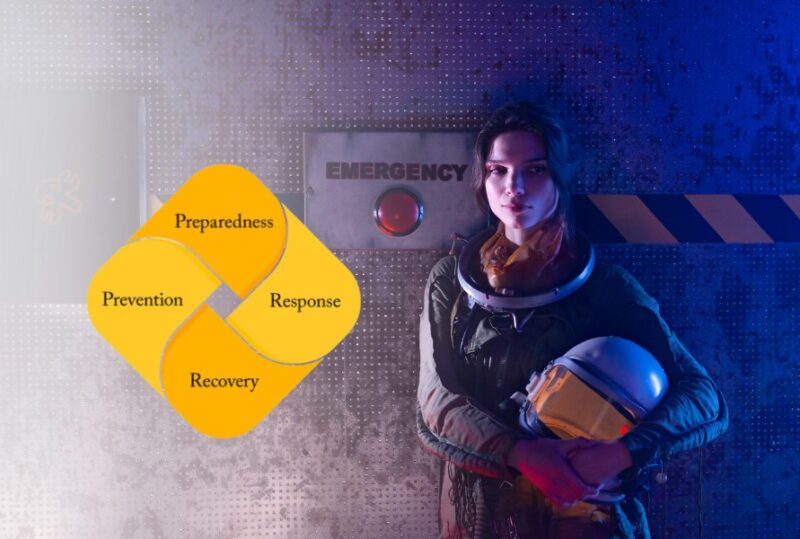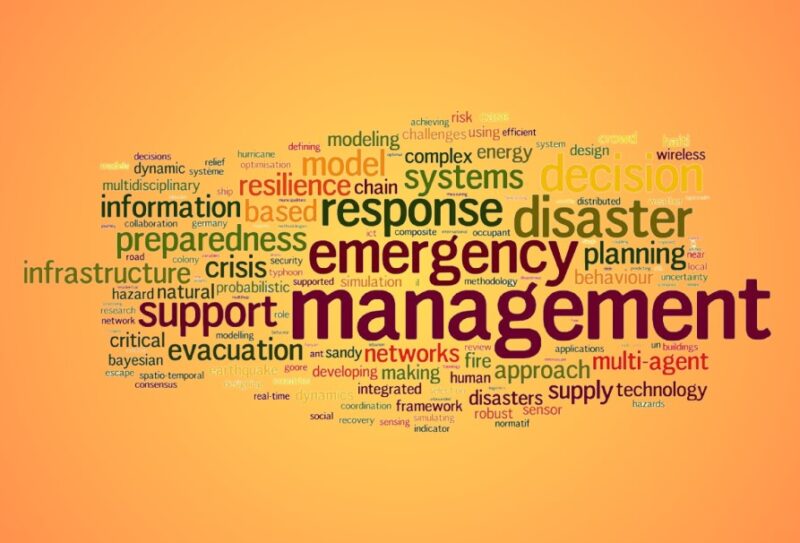In the world of crisis and disaster management, having the right credentials can make all the difference. One such important qualification is an Emergency Management Certification. This guide will take you through the journey of getting your certification, one step at a time.
Whether you are an existing professional in the field seeking to upgrade your skills or a newbie looking to make your mark, this guide will provide you with the necessary insights and practical steps to get you started. Without further ado, let’s get into it!
Essential Information You Need to Know

To navigate the journey of becoming a certified emergency manager, grasping the basics is the first crucial step. What is the certification all about, and what does it entail?
What Is Emergency Management Certification?
It is a formal recognition that an individual has achieved a specific level of knowledge, skills, and competence in managing emergencies. The certification is usually granted by professional bodies and institutions specialized in disaster and crisis management.
It generally covers various facets of emergency management, including mitigation, preparation, response, and recovery. It is designed to arm you with the necessary skills and knowledge to effectively handle different types of emergencies and disasters.
Its Importance
An Emergency Management Certification carries immense value in today’s world. As the frequency and severity of natural and man-made disasters increase, so does the demand for skilled emergency managers.
With this certification, you’re not just proving your competency to manage emergencies. You are also demonstrating your commitment to the profession. It is seen as a mark of distinction among employers and peers, often leading to better job opportunities and career advancement.
Eligibility Criteria

Before you embark on the journey to get your certification, it’s essential to understand the eligibility criteria. These prerequisites ensure that only capable and committed individuals enter the profession.
Educational Requirements
To pursue an Emergency Management Certification, you generally need to have at least a high school diploma or equivalent. However, most certification bodies prefer candidates with a bachelor’s degree in a related field like Public Safety, Emergency Management, or Environmental Science.
Some institutions offer an associate’s degree or diploma in emergency management, which is often considered an excellent stepping stone for aspiring emergency management professionals.
Work Experience
In addition to the educational requirements, a certain level of work experience in the field of emergency management is often a requirement. The specifics can vary, but generally, candidates are required to have between three to five years of professional experience.
The work experience requirement ensures that those seeking certification have not only theoretical knowledge but also practical insights into real-world emergency situations.
Types of Emergency Management Certification
There are different types of Emergency Management Certifications, each with a specific focus. Depending on your career goals and interests, you can choose the certification that suits you best.
Certified Emergency Manager (CEM)
The Certified Emergency Manager (CEM) designation is globally recognized and is granted by the International Association of Emergency Managers (IAEM). This certification requires applicants to have a bachelor’s degree and at least three years of emergency management experience.
The CEM program covers a comprehensive range of topics, including planning, coordination, and crisis communication. It’s designed for those who want to showcase their expertise in all aspects of emergency management.
Associate Emergency Manager (AEM)
The Associate Emergency Manager (AEM) is a stepping stone towards achieving the CEM certification. It is also offered by the IAEM and requires less work experience (at least one year). A bachelor’s degree is not required for the AEM.
The AEM is an excellent option for individuals who are starting their journey in emergency management and want to gain a competitive edge early in their careers.
Applying Process

Once you understand what certification is right for you and ensure that you meet the eligibility requirements, the next step is to apply for your certification.
The Application
The application process typically involves filling out an online application form, submitting the necessary documents, and paying the application fee. The required documents usually include copies of your educational certificates, work experience proof, and, sometimes, letters of recommendation.
Here are some general steps to follow in the application process:
- Complete the application form, ensuring all information is accurate.
- Gather and attach the necessary documents.
- Pay the application fee, which varies depending on the certification and the institution.
- Submit the application before the deadline.
Examination
Most Emergency Management Certifications require you to pass an exam to demonstrate your knowledge and skills. The exam typically covers a wide range of topics, including disaster mitigation, emergency planning, and disaster response and recovery.
Here’s what you can typically expect in the examination:
- A combination of multiple-choice and essay-style questions.
- Questions covering theoretical knowledge as well as practical applications.
- A set time limit to complete the exam.
Preparing for the Exam

Preparing for the certification exam requires a focused approach. Below, we’ll discuss some strategies to help you ace the exam.
Study Material and Resources
To effectively prepare for the exam, it’s essential to use the right study materials and resources. Many certification bodies provide study guides, handbooks, and other resources to help candidates prepare.
You might find the following resources helpful:
- Handbooks and study guides: These provide comprehensive information about the exam topics and often include practice questions.
- Online courses: Many institutions offer online preparatory courses for the certification exam.
- Peer study groups: Engaging in discussions with peers can give you a fresh perspective and a deeper understanding of the subjects.
Practice Exams
Taking practice exams is an effective way to prepare for the actual certification exam. They not only familiarize you with the exam format but also help you assess your knowledge level and identify areas of weakness.
It’s beneficial to:
- Take multiple practice exams to cover all possible question types.
- Time yourself while taking the practice exams to get used to the time limit.
- Review your answers after each exam to understand your mistakes and avoid them in the real exam.
Maintaining Your Emergency Management Certification

After earning your Emergency Management Certification, it’s important to maintain it to stay relevant in the field. Let’s see how you can do this.
Continuing Education
Most Emergency Management Certifications require certified professionals to engage in continuous education to maintain their credentials. This often involves attending seminars, workshops, and conferences or enrolling in related courses.
Here’s what continuing education might involve:
- Earning a certain number of continuing education credits within a specified period.
- Participating in relevant training programs.
- Attending industry conferences and seminars.
Recertification
Some Emergency Management Certifications require professionals to go through a recertification process every few years. This process usually involves submitting an application, providing proof of continued professional experience and education, and paying a recertification fee.
Here’s what this process may involve:
- Updating your application with recent professional experience.
- Submitting proof of continuing education credits.
- Paying the recertification fee.
FAQs

What is the Emergency Management Professional Program (EMPP)?
The EMPP is a program established by the Federal Emergency Management Agency’s (FEMA’s) Emergency Management Institute (EMI) to strengthen the field of emergency management. It provides a framework for acquiring the knowledge, skills, and abilities to enter and progress through the field and to meet the challenges of a dynamic and complex environment.
What Are the Different Academies Under the EMPP?
The EMPP includes the National Emergency Management Basic Academy (NEMBA), the National Emergency Management Advanced Academy (NEMAA), and the National Emergency Management Executive Academy (NEMEA). These academies provide a structured and progressive framework for emergency managers to acquire the knowledge, skills, and abilities to progress through their professional development.
What Is the Certified Emergency Manager (CEM) Credential?
The CEM credential is a nationally and internationally recognized professional certification for emergency managers. The EMPP academies are a pathway toward achieving certification or recertification of the CEM credential.
What Is the Cost of Attending the EMPP Courses?
The cost varies depending on the specific course and academy. It’s best to check the official FEMA website or contact the EMPP for the most accurate information.
Within the organization’s structure, a significant focus is placed on the vital assets and resources that fall under the purview of the Department of Homeland Security’s Federal Emergency Management Agency (FEMA).
Do I Have to Take the Academies in Order, Starting with The Basic Academy?
Yes, the academies are designed to be taken in order, starting with the Basic Academy, then the Advanced Academy, and finally, the Executive Academy.
Can I Substitute a State Course or College-Level Course for Any EMPP Courses?
This depends on the specific course and its relevance to the EMPP curriculum. It’s recommended to contact the EMPP for clarification.
Are the Academy Completion Certificates Recognized as An Industry-Wide Certification Program, Similar to Higher Education Institutes of Learning?
Yes, the completion certificates from the EMPP academies are recognized in the emergency management industry.
Can I Take the EMPP Courses Online?
This depends on the specific course. Some courses may be available online, while others may require in-person attendance.
Do I Have to Take the Basic Academy Courses in Order, and Can I Just Enroll in One Course?
It’s recommended to take the Basic Academy courses in order for a comprehensive understanding of the material. However, enrollment in individual courses may be possible depending on the specific circumstances.
What if I’m Not Selected for The Executive Academy?
If you’re not selected for the Executive Academy, it’s recommended to seek feedback, improve in the necessary areas, and reapply when the next opportunity arises.
Final Words
Getting an Emergency Management Certification is a valuable career move for anyone involved in crisis and disaster management. Though the journey may seem challenging, with the right preparation and commitment, it is certainly achievable.
In order to successfully complete the process of obtaining Emergency Management Certification, it’s essential to follow the straightforward steps outlined for retrieving your FEMA SID.
